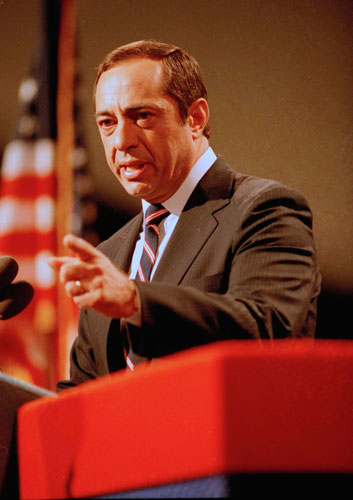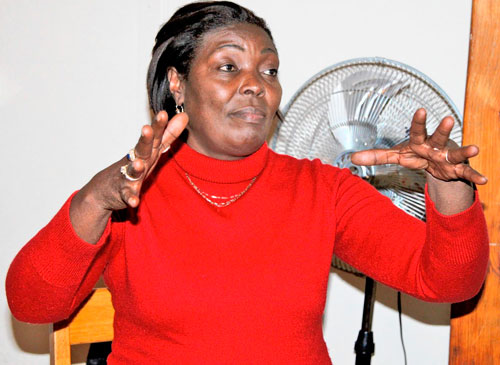The Dominicans Love Haitians Movement has joined the ranks of creative Dominicans in artistic collaboration with Haitians reaching across the contentious boundary that separates the two populations of the one island, Hispaniola.
Held at the Nuyorican Poets Café, in late February, four Dominicans and five Haitians came together in poetry, music and inspiration to celebrate commonalities.
The evening was organized by filmmaker and Borinqua College (Bushwick Campus) communications professor Clarivel Ruiz, a Dominican–American who went to the Dominican Republic for the first time in 2009. While she might have been aware of animosity between Haiti and the Dominican Republic, it really hit home on that first family trip to the DR when her father revealed that one of his grandmothers was Haitian.
Ruiz tells this story as an intro to a packed Nuyorican Café in this Lower East Side performance venue on that blustery rainy night.
At the point when her parents had been married for 45 years, her mother said, “If I had known that, I wouldn’t have married you.” She was sharing this deep-seated prejudice.
A poet herself, Ruiz speaks about a personal journey of self-reflection. “I was looking for why this (Dominican mind-set) is the way it is, particularly Dominicans not honoring their African ancestry.” She acknowledges how Dominicans have internalized the colonial attitude and denial of self.
The conversation of “the other” had also previously been with her; she had been having this discussion for several years.
“I asked myself how could we harness power on how we live our lives? How can we live without being hateful? I thought how poetry and music are great forms of expression of what we feel as people.”
Inside the creative community, Ruiz found others with whom it resonated to bring Dominican and Haitian performing artists together. She discovered Afro-Latina poet Amanda Alcantara who “lives in the intersections of gender and race,” who grew up in the DR and lives in between many identities. She found poet Roberto Carlos Garcia who knew Dominican poet YuBelly Rodriguez.
Ruiz’s friend Joyce Azor immediately wanted to collaborate. Her husband Steve Azor, founder of Ayiti Deploge, reached out to Haitian talent, bringing in newly arrived Anie Alert Joseph who sang during the evening. On acoustic guitar, Mikaelle Cartright sang in French Manno Charlemagne’s “Bam Yon Ti Limye” that asks: Why must the Black race suffer? Why are they treated so unfairly?
Others who performed were Haitian rapper singers Rossini Celestin and also D’eithchy & and Tre Issacs.
The 40-year-old multicultural and multi-arts Nuyorican Café, a perfect venue for these spoken words artists to perform together, has a history of giving voice to diverse groups of rising poets, actors, filmmakers and musicians who have not yet found consistent havens for their work.
Following the performances, audience members mingled in a spirit of harmony and personal conversations. “So beautiful,” exclaims Ruiz. “I was so moved by the level of artistry and engagement of the audience.”
Ruiz wants to have more of these events, expanding into Brooklyn and the Bronx and including visual arts.
Recently, Bric TV broadcast a piece on this artistic effort to bridge the gap between the two countries: www.youtu.be/9DqmPFy9gVo.

























